Are you in game development projects but don’t understand anything about design? Do not worry! Taking game design courses is the smartest choice for you to gain basic game development knowledge.
I have completed many paid and free courses over the years, and here are the top 10 courses that you should consider.
Let’s explore my real learning experiences to make the right choice!
1. Introduction to Game Design
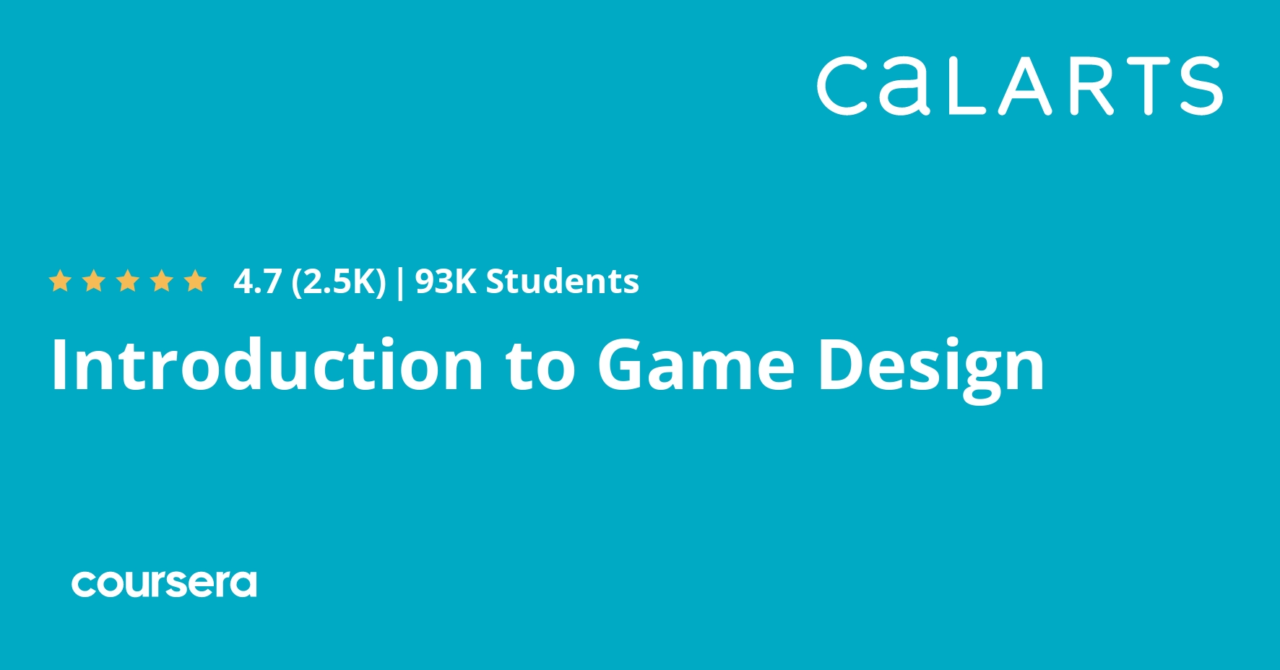
Specifications
- Difficulty: Beginner.
- Duration: Approx 6 hours to complete.
- Price: Free.
- Provider: CalArts.
Course’s Highlights
I always recommend Introduction to Game Design for beginners. This course provides all the game basics and how players interact with the game.
I was particularly impressed with the definitions the course provided. It’s easy to understand, practical and valuable. In addition to providing information, the study offers 4 exercises for learners to practice creating and describing games.
However, it is unfortunate that Introduction to Game Design only stops at giving concepts and information related to the game idea.
Thus, its exercises are also quite simple. Some activities can even be completed with pencil and paper, requiring no coding or programming.
If you are a beginner, the Introduction to Game Design will be helpful to you. Yet, what the course offers will not be enough if you want to improve your skills.
Enroll Here: https://www.coursera.org/learn/game-design
Pros
- Easy to understand.
- Good for beginners.
- Exercises included.
- Simple exercises.
- No programming knowledge is required.
Cons
- The course content is heavy on theory.
2. Game Design: Art and Concepts
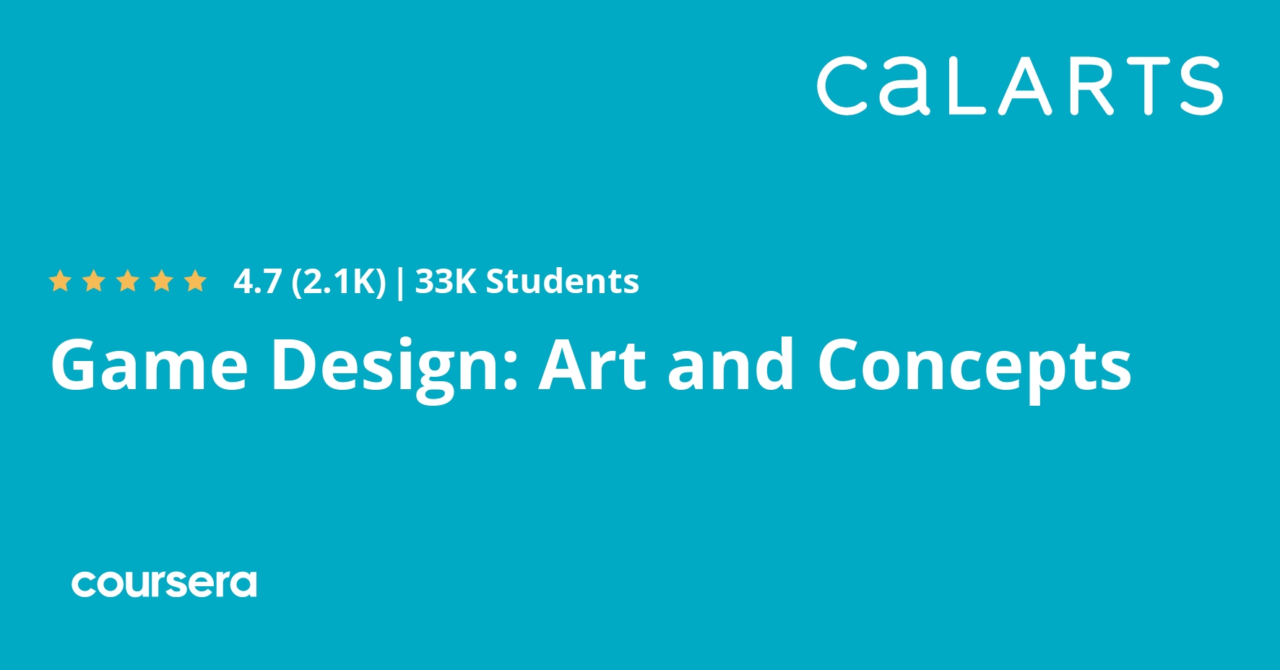
Specifications:
- Difficulty: Beginner.
- Duration: Approximately 6 months to complete.
- Price: Free.
- Provider: CalArts.
Course’s Highlights
If the theory-heavy introductory courses don’t ignite your interest, you can look to Game Design: Art and Concepts Specialization.
Art and Concepts Specialization taught me how to create game worlds and detailed and vivid player contexts.
It also provides much exciting knowledge to create successful character designs.
During the four weeks, I was mentored by three professional character designers and shared in-studio character-building experiences.
The knowledge that Andy Ristaino (Adventure Time) and Robertryan Cory (SpongeBob SquarePants) provided was helpful beyond my expectations.
While useful, fun, and engaging, this course still has some problems. One of them is that it requires participants to be able to draw. In my opinion, it is more directed at those interested in cinematic and animation elements in the game.
Enroll Here: https://www.coursera.org/specializations/game-design
Pros
- Fun and engaging course.
- Lots of practice exercises.
- Taught by famous character designers.
- Full of information on how to create game worlds.
- A detailed guide to successful character design.
Cons
- More suitable for students withdrawing ability.
3. Game Design Fundamentals

Specifications:
- Difficulty: Beginner.
- Duration: 1h 25m.
- Price: $29 per month after a 10-day trial.
- Provider: Skills.
Course’s Highlights
Lack of ideas is a big challenge that any game developer often faces, especially for beginners. And Game Design Fundamentals is the course you should take if you want to build and develop your ideas.
I spent over an hour watching all the videos the course had to offer. Although it didn’t take too long, I learned a lot of tips for managing projects, creating schedules, and building games.
It also details how to assemble concept sketches to build games. Game Design Fundamentals is a simple course that provides the knowledge needed to build a compelling game schedule. It would be even more helpful if there were more practical examples and exercises for learners to practice.
Enroll Here: https://www.pluralsight.com/courses/game-design-fundamentals
Pros
- Short course duration.
- Easy to follow anywhere
- Detailed instructions on how to create a schedule.
- Good support for building and developing ideas.
Cons
- Missing examples.
4. Game Design and Development with Unity

Specifications:
- Difficulty: Beginner.
- Duration: 5 months.
- Price: Free.
- Provider: Michigan State University.
Course’s Highlights
Game Design and Development with Unity 2020 Specialization is especially suitable for 2D and 3D game development.
In my experience, this course has allowed learners to design and develop 2D frolickings. It provides knowledge and requires learners to create game projects.
The projects I am most interested in are 2D Shooter and 2D Platformer. The things I obtained after the course are enough to complete these two projects.
In addition to 2D game projects, learners must complete a 3D Platformer project. Yet, I don’t appreciate this activity. What they learn in the course is not enough for those just starting to handle the project’s requirements.
Enroll Here: https://www.coursera.org/specializations/game-design-and-development
Pros
- No programming skills are required.
- Many end-of-course projects.
- Opportunity to participate in an applied learning project.
- Knowledge of highly applicable 2D game development.
- Help learners understand the game design and development process.
Cons
- Not so ideal for learning 3D game development.
5. Game Theory
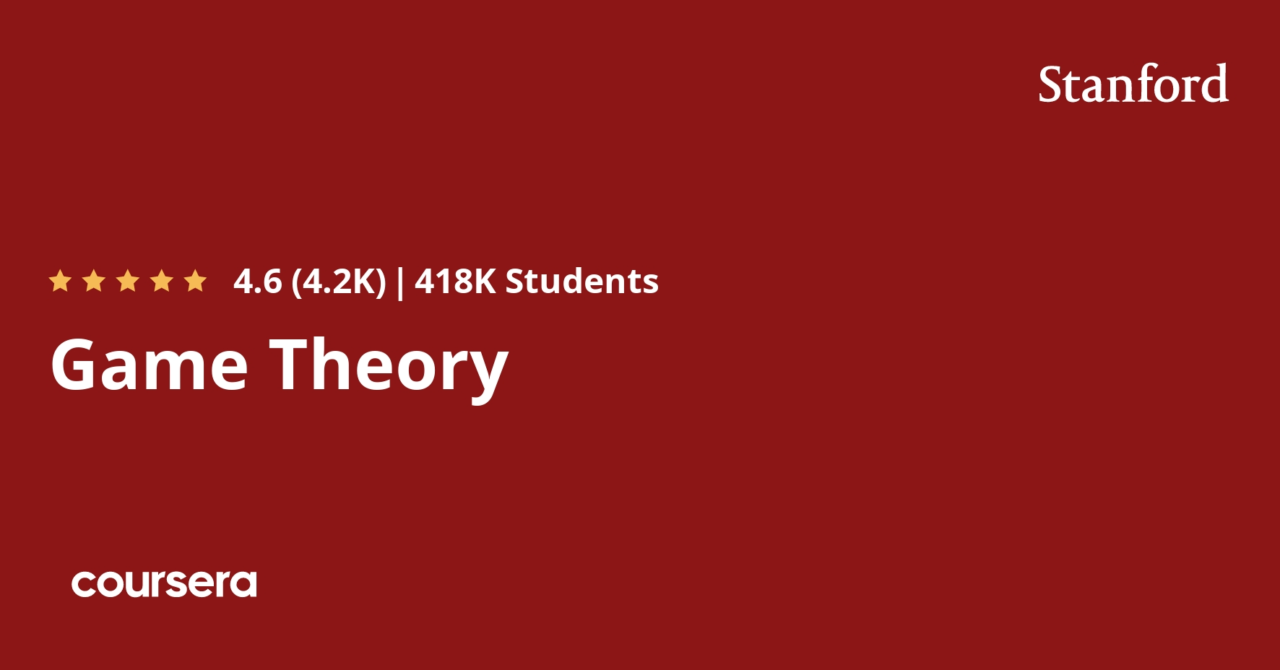
Specifications:
- Difficulty: Beginner.
- Duration: Approx. 18 hours to complete.
- Price: Free.
- Provider: Stanford University, The University of British Columbia.
Course’s Highlights
The Game Theory course includes knowledge related to strategy-building game trees, Bayesian games, iterative and random games, and others.
I especially love the 5th-week repeat game content. This pack of 7 videos provides valuable information for infinitely repetitive game development.
It also deals with folk theorems, rewards, and random games. This knowledge is presented in a relatively simple and easy-to-understand way to make creating a repeatable game no longer too difficult.
The course covers creating several other types of games and includes a final quiz to test learners’ knowledge. I hope that in future textbooks, teachers can add more exercises for learners to practice every time they learn about a new game.
Enroll Here: https://www.coursera.org/learn/game-theory-1
Pros
- Game tree theory.
- Instructions for creating a Bayes game.
- Tutorial on repeating and random games.
- Guide to building game development strategy.
Cons
- Need more practice exercises.
6. Unreal Engine Intro to Game Design
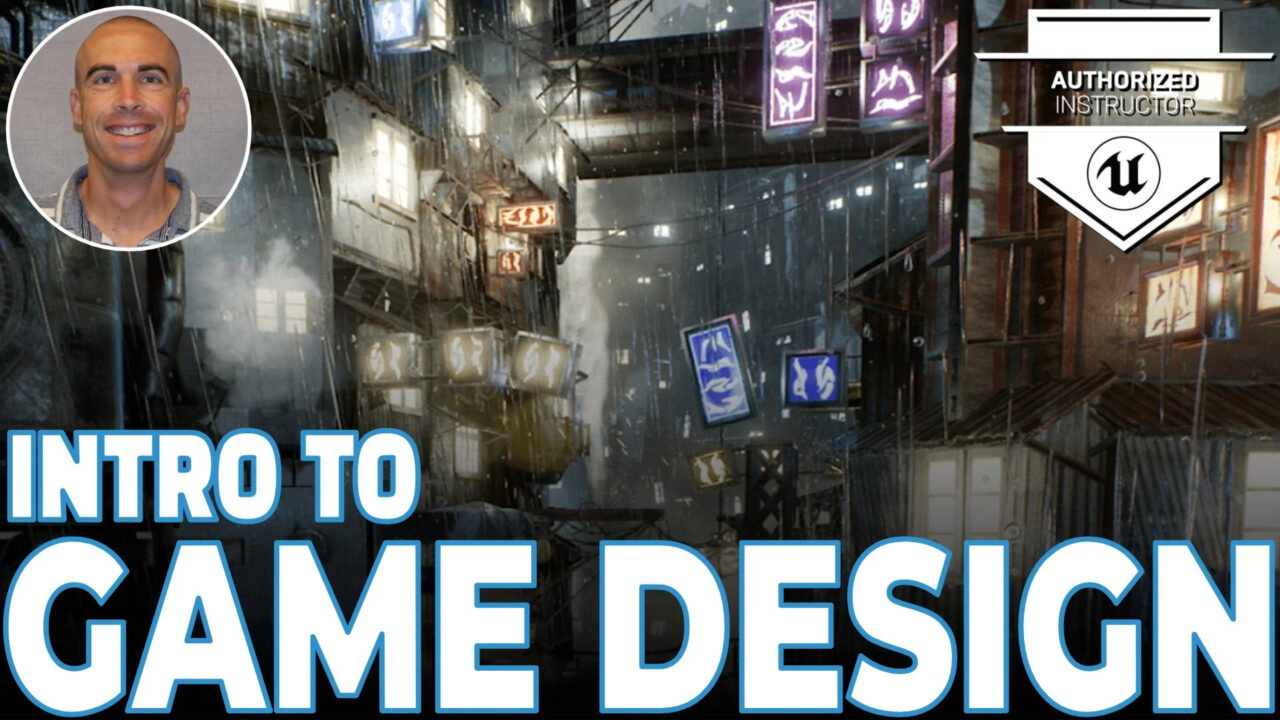
Specifications:
- Difficulty: Beginner, intermediate or advanced.
- Duration: 11: 18m.
- Price: Free.
- Provider: Skillshare.
Course’s Highlights
Don’t know about programming and worry that these shortcomings will affect your game design learning process? With Unreal Engine, you can build simple shooter library games without writing code.
This course will guide learners to develop games on Unreal Engine 4. All lessons are in video form that is short and easy to understand, even for students with no coding knowledge.
With the detailed Blueprint Scripting tutorials and many tools available in Unreal Engine 4, I quickly create 2D games without any programming knowledge.
Unreal Engine does not require learners to have a programming background. But you have to be focused to learn about all the pretty complex stuff in the course.
Enroll Here: https://www.skillshare.com/en/classes/Unreal-Engine-Intro-to-Game-Design/1426949725
Pros
- Short video duration.
- Learners can build simple shooting games.
- No programming background is required.
- understand instructions for using Blueprint Scripting
- Create games through the Unreal Engine 4 platform.
Cons
- Knowledge is quite confusing for beginners.
7. Your First Day in Blender 3D

Specifications:
- Difficulty: Beginner.
- Duration: 35m.
- Price:
- Provider: Skillshare.
Course’s Highlights
As the name suggests, Your First Day in Blender 3D teaches beginners how to use Blender to develop game scenes.
In the first lessons, the lecture covered quite a lot about the interface and navigation in Blender. I have had experience using this software before, so I am familiar with the theory this course covers.
However, Your First Day in Blender 3D quickly conquered me with hands-on exercises such as cone framing and model animations.
In subsequent lessons, the course continued to interest me with hands-on exercises in modeling, interfaces, and lighting. Its knowledge and practices are pretty helpful for those new to 3D.
Yet, if you simply want to learn about basic game design and 2D games, what Your First Day in Blender 3D has to offer isn’t too helpful.
Enroll Here: https://www.skillshare.com/en/classes/Your-First-Day-in-Blender-3D/746658694
Pros
- The exercise is quite helpful.
- Ideal for getting used to 3D.
- Detailed Blender manual.
- Combination of theory and practice.
- Provide information on modeling, interface, and lighting.
Cons
- Not suitable for 2D game design.
8. The Psychology of Player Experience
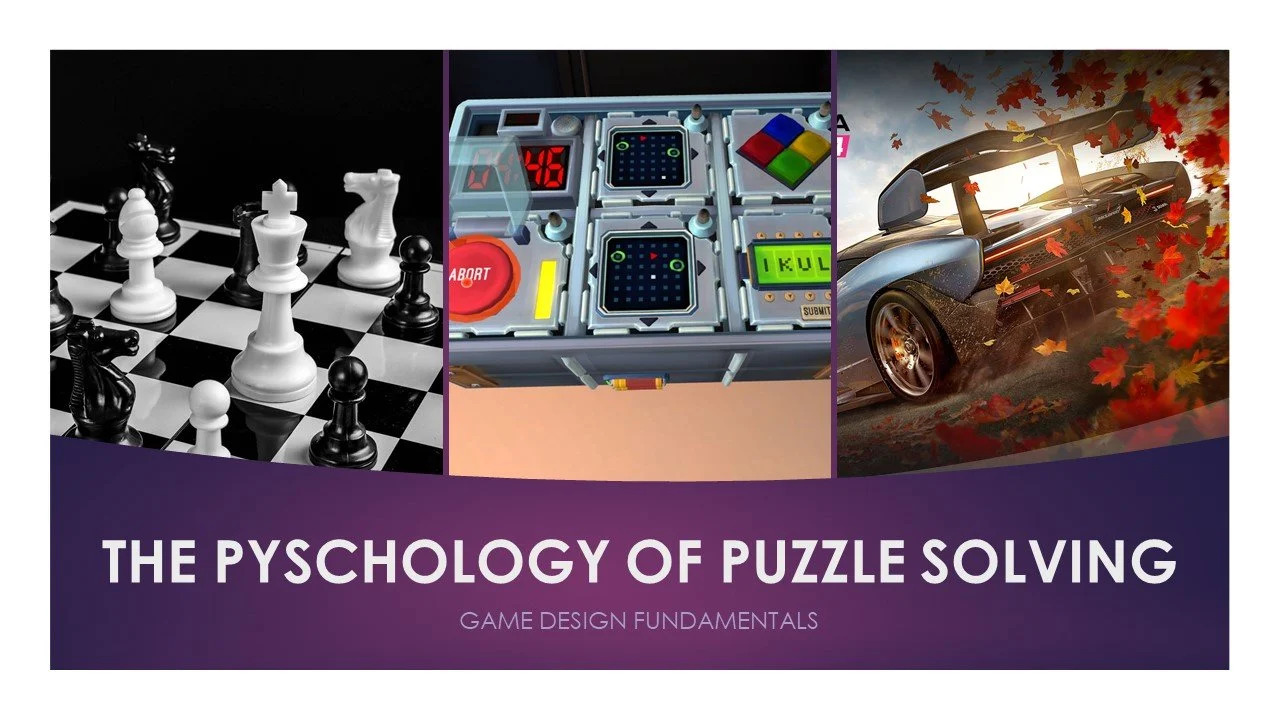
Specifications:
- Difficulty: Beginner.
- Duration: 30m.
- Price: Free.
- Provider: Skillshare.
Course’s Highlights
The Psychology of Puzzle Solving: Game Design Fundamentals doesn’t teach you how to code and the most popular game patterns. Instead, it delves into the fundamentals of player psychology.
When I first learned about game design, I didn’t pay much attention to this issue. Yet, after a long time, I understood that a game developer is bound to take a course in player psychology.
The Psychology of Puzzle Solving is one of those worth learning. It taught me a lot about player needs and how to attract their attention to my product.
Yet, if you’ve never made a game, this course is unlikely to live up to your expectations. It only focuses on knowledge related to the audience your game is aimed at.
Enroll Here: https://www.skillshare.com/en/classes/The-Psychology-of-Puzzle-Solving-Game-Design-Fundamentals/1712571262
Pros
- Get the player’s attention.
- Change the way you create games.
- The course duration is relatively short.
- Suitable for many different audiences.
- Help learners understand the psychology of players.
Cons
- No programming practice.
9. Game Design and Development 1: 2D Shooter
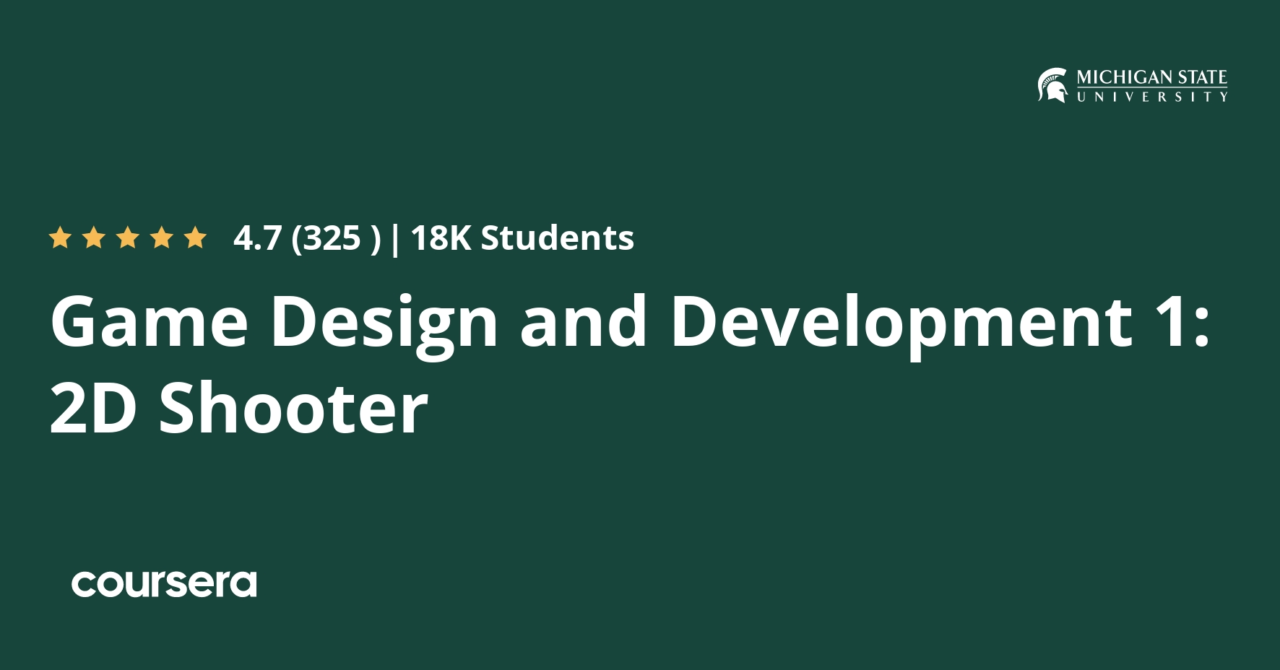
Specifications:
- Difficulty: Beginner.
- Duration: Approx. 15 hours to complete.
- Price: Free.
- Provider: Michigan State University.
Course’s Highlights
If you already have specific knowledge about game design and want to create your game, Game Design and Development 1: 2D Shooter is for you.
Like many other courses, Game Design and Development 1: 2D Shooter provides many tools for the game development process. More specifically, in this course, you will be directly acquainted with the tool and develop your video games.
At the end of the course, I received a request to complete two projects, including Intro to Unity and a 2D Shooting game. And I got pretty excited and spent a lot of time developing the base games.
The publisher says it is suitable for beginners. Yet, to keep up with the course content, before that, you should have a little understanding of game design.
Enroll Here: https://www.coursera.org/learn/game-design-and-development-1
Pros
- Many useful tools.
- High practical application.
- Fun and hands-on project.
- Support simple video game development.
- Detailed information about the game development process.
Cons
- Not suitable for beginners.
10. Unreal Engine 5: Environment Design
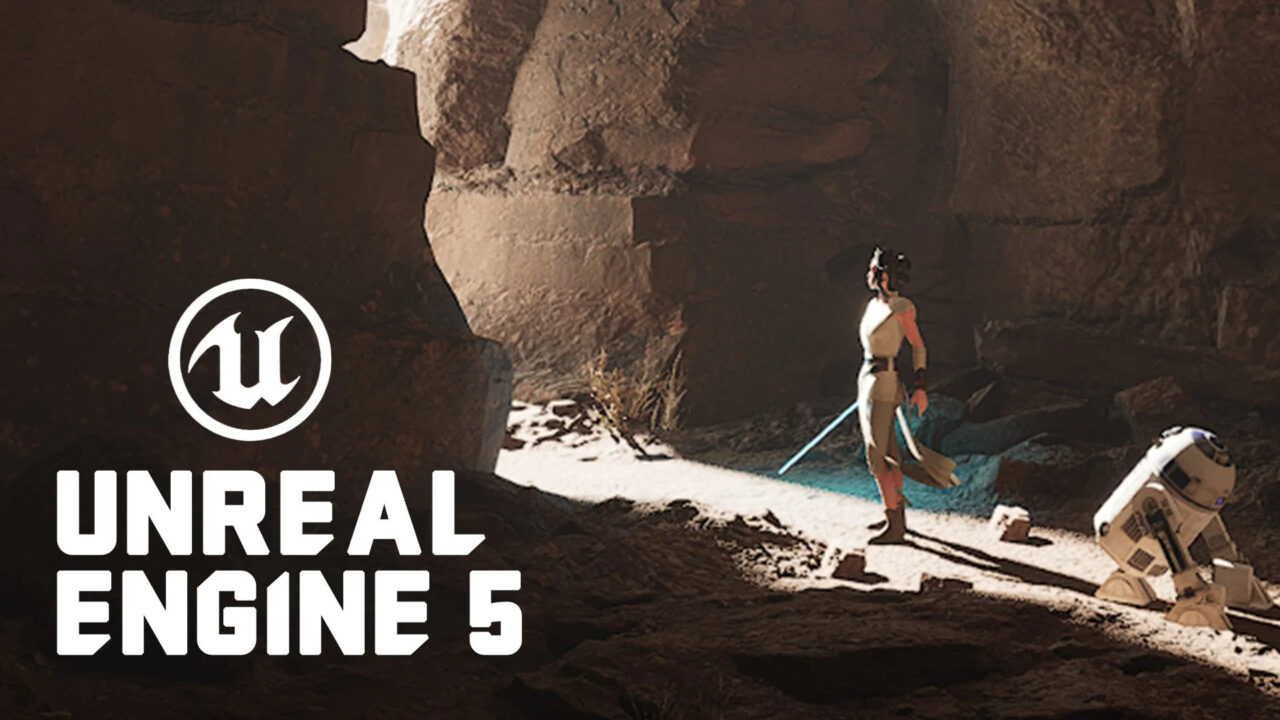
Specifications:
- Difficulty: Beginner.
- Duration: 1h 12m.
- Price: Free.
- Provider: Skillshare.
Course’s Highlights
It took me about one hour to finish Unreal Engine 5. Yet, what the course brings is quite valuable. To save time, the course doesn’t cover the basics of Unreal Engine 5. Instead, it covers how to generate ideas, render images, and use the essential tools of Unreal Engine 5.
After finishing the course, I could create a complete 3D environment. In particular, I made a classic scene from the star wars movie. It is a course you should not miss if you are also a fan of this series.
Yet, to achieve the above, you must first be familiar with Unreal Engine 5. This short course is not for those just starting to learn about this software.
Enroll Here: https://www.skillshare.com/en/classes/Unreal-Engine-5-Environment-Design/923028392
Pros
- High usability.
- The period is short.
- Fun hands-on exercise.
- Learners can create 3D environments.
- Tutorials on how to use Unreal Engine 5.
Cons
- Must have prior Unreal Engine 5 knowledge.
Learning Guide
In addition to the names I introduced above, there are many courses for you to choose from. To select the suitable course, you should refer to the notes below.
Learning Level
Most of the free online game design courses are for beginners. They do not require learners to understand programming or code.
If you want to develop your level, look for intermediate or advanced classes. Usually, they will require you to have specific skills and pay a small fee to join.
Affordability
Most of the courses I recommend to you are entirely free. Some other requests will require you to pay a fee. You need to consider affordability when signing up for these courses. For starters, you should spend less than $10 for a period.
Flexibility
The flexibility of the learning experience is also a consideration. The best options will allow you to learn at your own pace. In addition, it should also offer the ability to be offline or study on a phone or other device.
FAQs
What skills does a game designer need?
A game designer needs creativity, storytelling ability, and knowledge of game trends. At the same time, the designer should have programming skills and a passion for video games.
How long is a game design course?
Most courses allow you to study for an unlimited amount of time. With free classes, you can complete it in a few hours or 1-2 weeks.
Where do game designers work?
Video game designers often work in offices, collaborating with colleagues, software developers, or computer professionals.
Do game designers need to code?
Coding is not a required skill for game designers. However, to succeed in this field, you should understand coding languages.
Does the game design need drawing?
Game designers are not required to be able to draw. However, they should have creative thinking to develop the game.
Final Thoughts
Introduction to Game Design is the course I highly recommend for beginners because of the background knowledge and easy-to-understand lectures.
After completing this course, you should also enroll in some of the courses I have recommended. They all provide helpful knowledge for further development in your field.
I hope you learn practical knowledge and succeed in building and developing your game. Thank you for your interest in the article!
